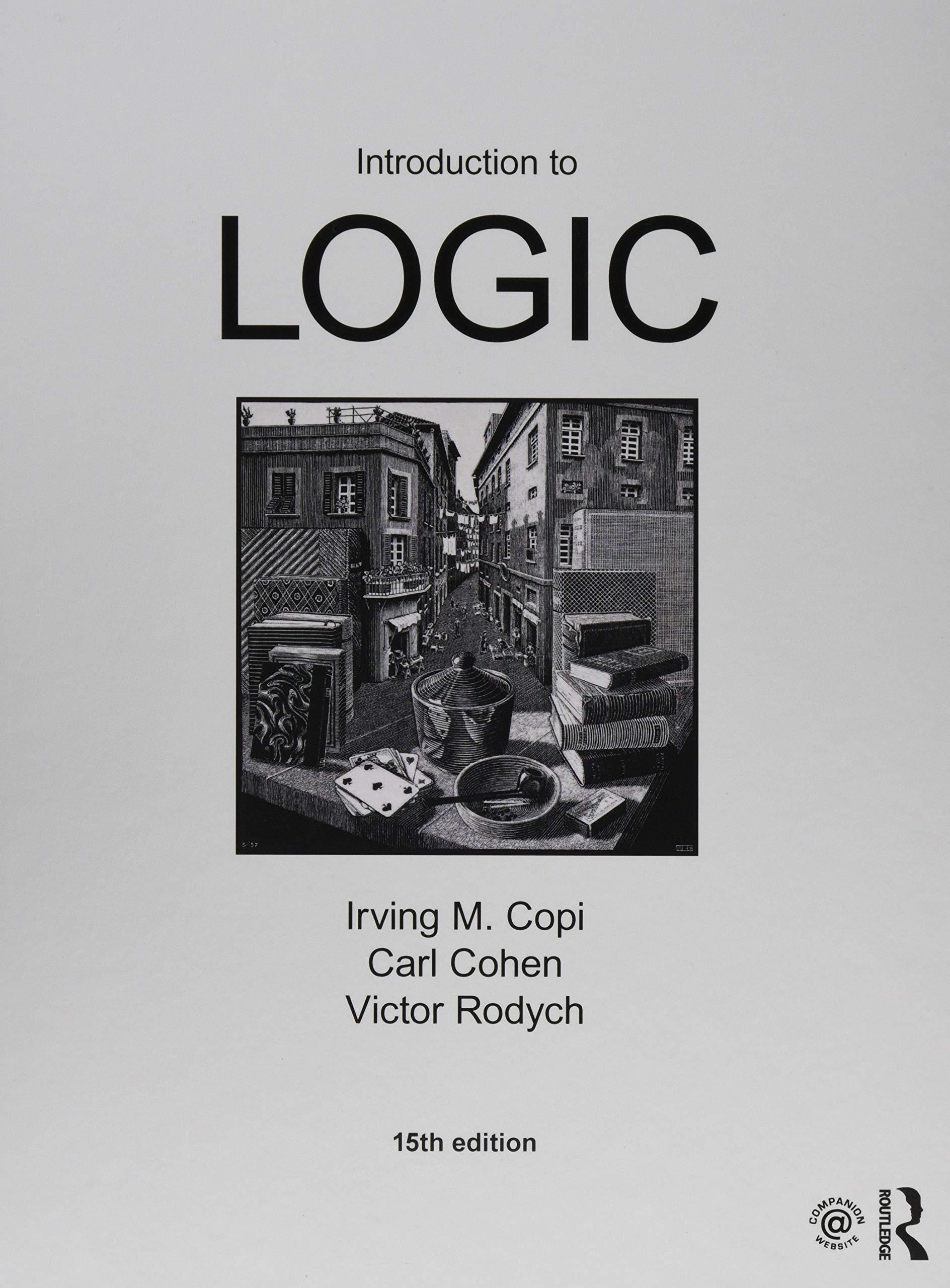For each of the following enthymematic arguments: a. Formulate the plausible premise or conclusion, if any, that
Question:
For each of the following enthymematic arguments:
a. Formulate the plausible premise or conclusion, if any, that is missing but understood.
b. Write the argument in standard form, including the missing premise or conclusion needed to make the completed argument valid—if possible—using parameters if necessary.
c. Name the order of the enthymeme.
d. If the argument is not valid even with the understood premise included, name the fallacy that it commits.
And why not become a perfect anthropomorphite? Why not assert the deity or deities to be corporeal, and to have eyes, a nose, mouth, ears, etc.? Epicurus maintained that no man had ever seen reason but in a human figure; therefore, the gods must have a human figure. And this argument, which is deservedly so much ridiculed by Cicero, becomes, according to you, solid and philosophical.
—David Hume, Dialogues Concerning Natural Religion , part V, 1779
Step by Step Answer:

Introduction To Logic
ISBN: 9781138500860
15th Edition
Authors: Irving M. Copi, Carl Cohen, Victor Rodych





